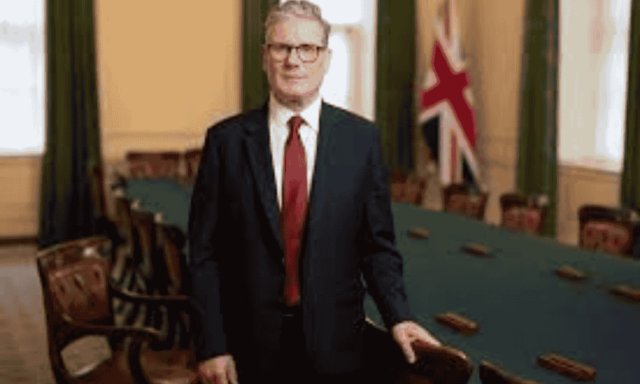London: The ongoing war in Ukraine remains a major global concern, and UK Prime Minister Sir Keir Starmer has made it clear that Ukraine must be at the center of any peace negotiations. His statement comes amid reports that US President Donald Trump and Russian President Vladimir Putin have agreed to begin discussions on ending the nearly three-year-long conflict.
Ukraine’s Position in Negotiations
Starmer emphasized that Ukraine should be in the “strongest possible position” for any peace talks. He stressed that the UK must continue providing financial aid, military training, and equipment to support Ukraine. The prime minister’s comments align with Ukraine’s President Volodymyr Zelensky, who has rejected any agreement made without Kyiv’s involvement.
“Everything must not go according to Putin’s plan,” Zelensky warned, expressing concerns that Russia would try to negotiate directly with the US, excluding Ukraine from the process.
UK’s Continued Support for Ukraine
The UK has been a key ally of Ukraine, already committing over £12.8 billion in aid. In a recent move, Starmer signed a 100-year pact with Ukraine, ensuring long-term support. Additionally, the UK has pledged an annual military assistance package of £3 billion “for as long as it takes.”
The UK’s Defence Minister John Healey echoed Starmer’s sentiments, saying, “There can be no negotiation about Ukraine without Ukraine.” He highlighted Russia’s continued threat beyond Ukraine’s borders and emphasized that NATO must maintain a united front.
US-Russia Talks Raise Concerns
A recent phone call between Presidents Trump and Putin has raised concerns among NATO allies. Trump announced on his Truth Social platform that he and Putin had agreed to start peace negotiations “immediately.” The talks are expected to be followed by a meeting, possibly in Saudi Arabia. Trump also revealed that he and Putin had extended invitations to visit each other’s capitals.
While NATO leaders, including Secretary-General Mark Rutte, insist that Ukraine must be involved in any deal, the reality is that Washington is now leading the process. This shift has pushed NATO to the sidelines, weakening its influence over the outcome.
NATO’s Struggle to Maintain Unity
With Trump taking a unilateral approach, NATO’s solidarity on Ukraine is beginning to crack. The US has made it clear that it is not willing to continue bankrolling Ukraine’s military needs indefinitely. US Defence Secretary Pete Hegseth stated that European nations must now provide the “overwhelming” share of funding for Ukraine’s defense.
The US is also reportedly reluctant to support Ukraine’s ambitions of reclaiming all its territory lost to Russia since 2014. Additionally, Ukraine’s NATO membership remains uncertain, with officials saying the process will take time.
Growing Concerns in Europe
Several European leaders have expressed concerns over the US’s shift in stance. German Defence Minister Boris Pistorius voiced regret that Washington has already made concessions to Russia before talks have even begun.
Meanwhile, UK Defence Minister Maria Eagle emphasized that Britain will continue providing Ukraine with necessary arms and military support to ensure it remains strong during negotiations.
However, with the US reducing its commitment, NATO is struggling to meet Trump’s demands. The former president has set a high expectation for allies to increase their defense spending to 5% of GDP—a target that most countries are unable to meet.
Conclusion
As negotiations unfold, Ukraine’s role in shaping the peace deal remains uncertain. While the UK and other NATO allies are committed to supporting Kyiv, the US’s new approach raises questions about the war’s future.
For now, NATO leaders are urging unity, but with Washington taking the lead, Ukraine’s fate may depend more on US-Russia discussions than on its own diplomatic efforts.











